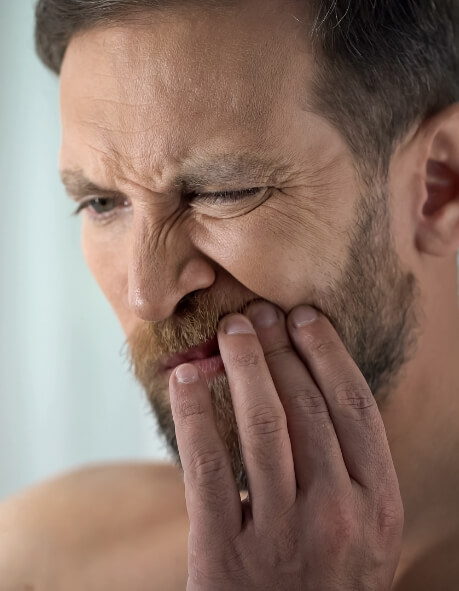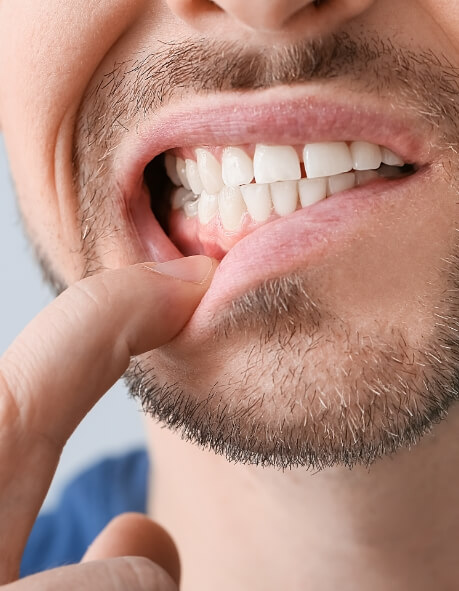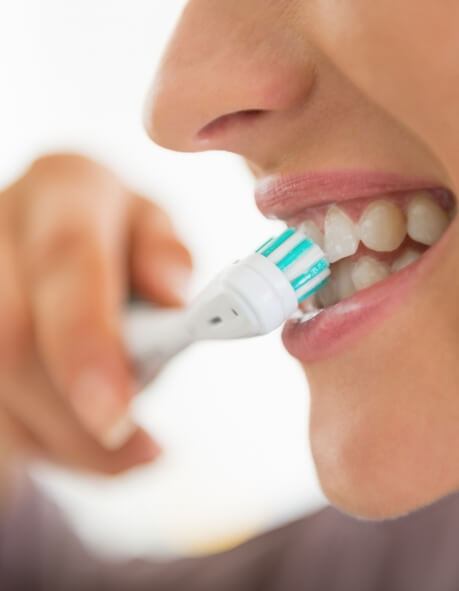Gum Disease Treatment Norwood
Cleaner, Healthier Gums for Life

Do you know the dangers of untreated gum disease? Many patients aren’t aware of the acute health risks associated with periodontal disease (gum disease). Gum disease occurs when tarter and plaque buildup spreads beneath your gumline. Countless studies have shown a direct link between gum disease and several life-threatening medical conditions, including heart disease, diabetes, respiratory disease, cancer, and premature birth. The bacteria from untreated periodontal disease can spread to other parts of the body, wreaking havoc on your good health.
Since gum disease often progresses without any painful symptoms, it can cause severe damage without being noticed until it’s too late. The good news is that we can treat periodontal disease, and even reverse it in some cases. But you shouldn’t wait for gum disease to attack you or your family. You can prevent it by making sure your family is screened for gum disease at least twice a year. Central Dental Associates can provide the protection you need to stay healthy and disease-free, so call us today for gum disease treatment in Norwood.
Why Choose Central Dental Associates for Gum Disease Treatment?
- Conservative Treatment Options Available
- Qualified Periodontist on Staff
- Flexible Financing with CareCredit
What Is Gum Disease?

- Gingivitis - This is the mildest form of gum disease. It can cause the gums to turn red, swell, or bleed easily after brushing, flossing, or eating. However, there is usually little to no discomfort experienced at this stage. Gingivitis is often caused by inadequate oral hygiene; but is reversible with professional gum disease treatment and improved at-home dental habits.
- Periodontitis - Untreated gingivitis can progress quickly to periodontitis. The toxins produced by the bacteria in the plaque buildup can irritate your gums and stimulate a chronic inflammatory response in your body. Your body responds by turning on itself and breaking down and destroying the tissues and bones that support your teeth. At this point, your gums may separate from your teeth, forming deep pockets that can become re-infected. As the infection progresses, the pockets deepen further, and even more gum tissue and bone are destroyed. Although this destructive cycle has very mild symptoms, if left untreated, your teeth will loosen and may fall out or have to be removed.
Who’s at Risk for Developing Gum Disease?

Anyone can develop gum disease at any age; however, poor oral hygiene habits and failure to get regular dental checkups and cleanings directly contribute to the development of gum disease and the need for treatment. Many other factors can contribute to the development of gingivitis, including diabetes, use of tobacco products, aging, genetic predisposition, systemic diseases and conditions, stress, inadequate nutrition, puberty, hormonal fluctuations, pregnancy, substance abuse, HIV infection, and taking certain prescription medications.
Do You Need Gum Disease Treatment?

If you or someone in your family exhibits any of the following symptoms, you should make an immediate appointment with our Norwood dental office:
- Red, swollen, tender, or painful gums
- Bleeding while brushing, flossing, or eating certain foods
- Gums that are actually receding from your teeth
- Loosened or separated teeth
- Mucus between your gums and teeth
- Mouth sores
- Halitosis
- A change in the way your teeth fit together when you bite down
- A change in the fit or function of your full or partial dentures
How Can You Prevent Gum Disease and Periodontitis?

Luckily, gum disease is not only treatable but also preventable. To reduce your risk of developing gum disease, you should:
- Brush your teeth twice daily - Brushing twice a day and after meals can help remove food debris and plaque trapped between your teeth and gums.
- Floss at least once a day - Flossing also helps remove food particles and plaque between teeth and along the gum line that your toothbrush just can’t reach.
- Use mouthwash - Using mouthwash can help reduce plaque and can also remove the remaining food particles that brushing and flossing can miss.
- Know your risk - Remember that your risk for developing gum disease can increase with age, smoking, diet, genetics, and certain medications. If you are at increased risk, it’s important to get screened for gum disease early and often.
- Get checked out - The easiest way to prevent gum disease is to keep your routine dental checkup and cleaning appointments. We can remove the stubborn tartar and plaque buildup that home oral hygiene care can miss.
